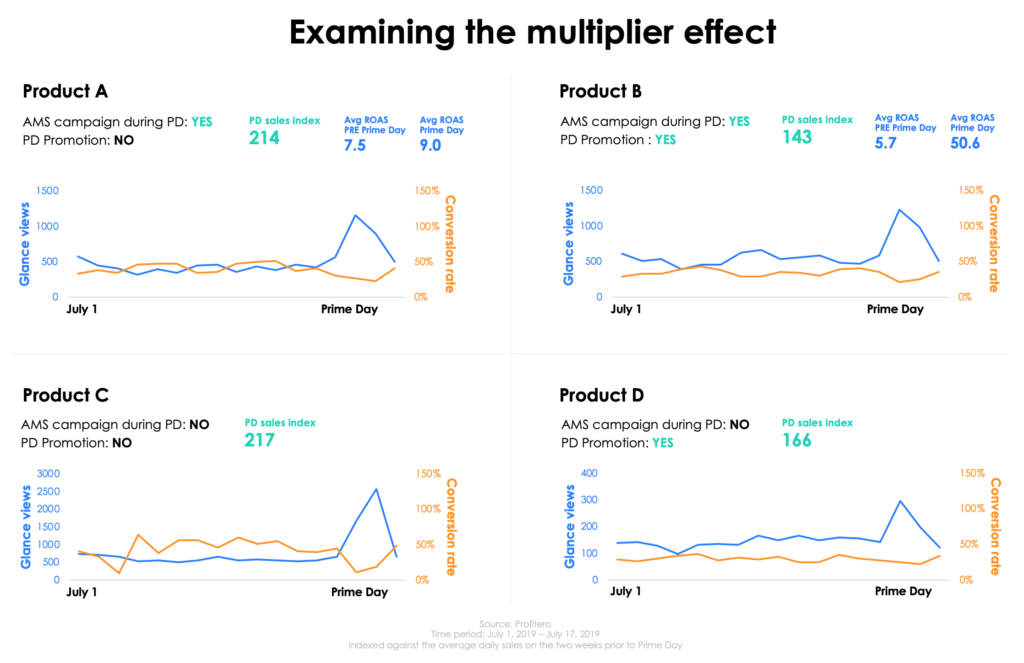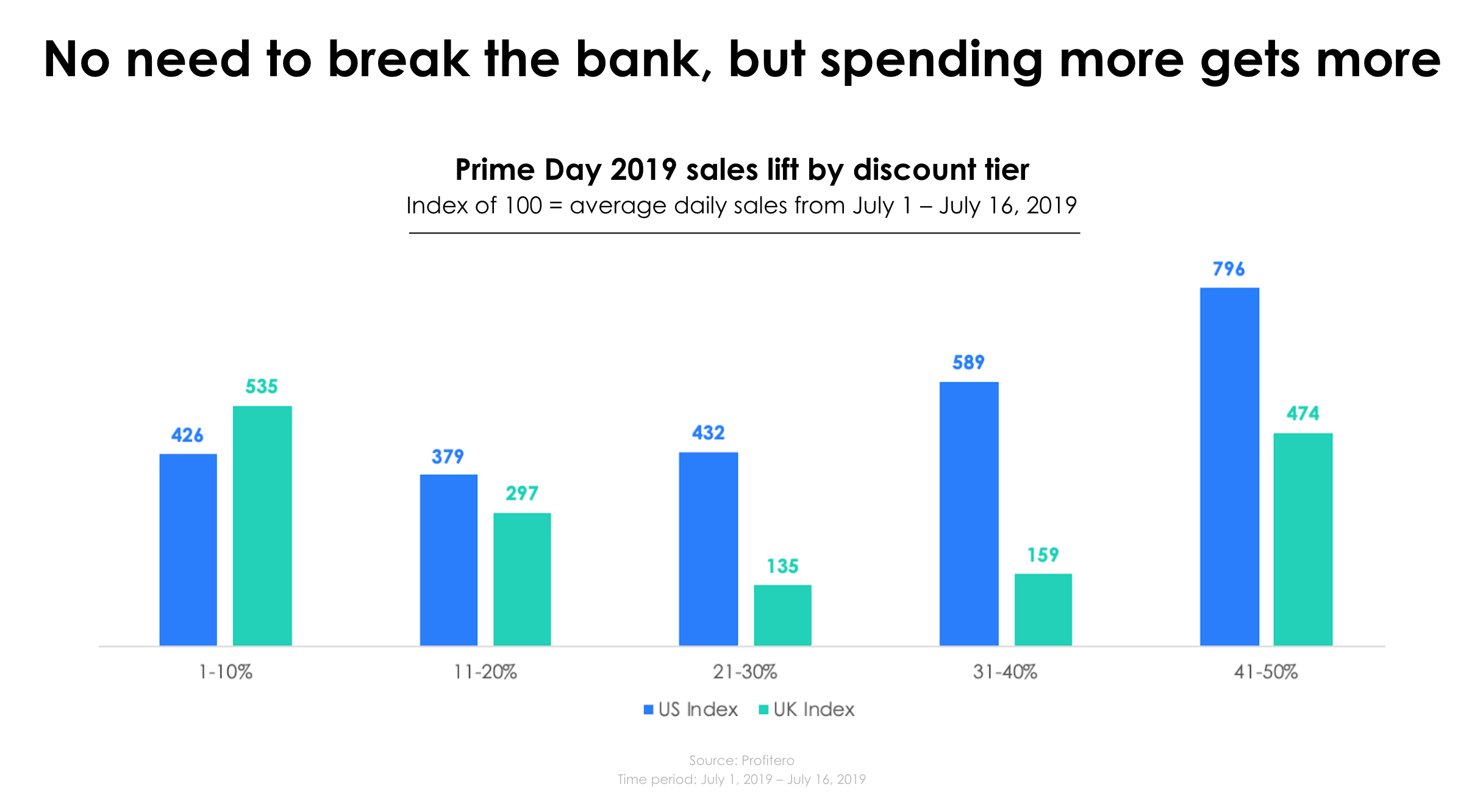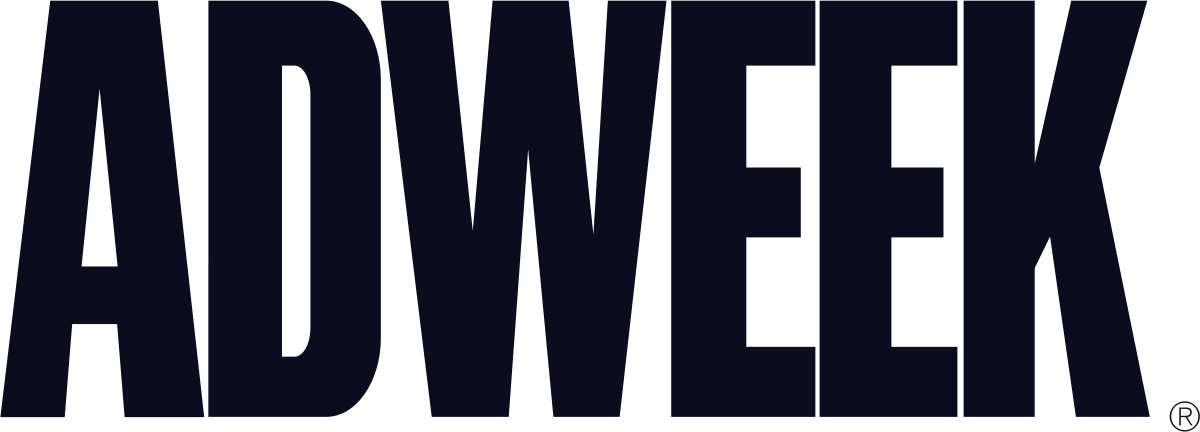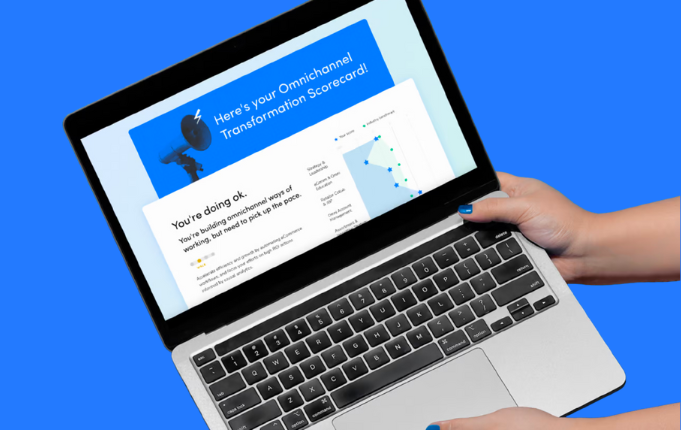

Prime Day is a great laboratory for testing promotional strategies that can be used for any key season of the year, such as Black Friday/Cyber Monday weekend.
This year, Profitero reported a number of creative outside-the-box tactics from Prime Day. But one area that deserves a special call-out is how some brands were able to coordinate their promotions and AMS campaigns for maximized results.
Promotional discounts + AMS = Multiplier Effect
On Prime Day, we saw brands can use many different promotional strategies to boost traffic and sales during seasonal events:
- Some brands ran promotions, using deals and discounts to drive conversion rate
- Others opted instead to invest more heavily in Amazon Advertising (AMS) to capture spearfishing traffic, instead of just relying on category features
- Still others did both, combining promotional discounts with AMS
We found the biggest returns came from brands that activated on multiple fronts, running both promotions and AMS campaigns.
Let’s look at some examples.
The matrix below shows different products, all within the same category, which took four different approaches on Prime Day — some running Prime Day promotions or doing an AMS sponsorship, or both, or neither.

What we found is that you can win in any case. You can win by just running a Prime Day promotion. You can win by just doing AMS sponsorship. Each approach is a success story, and we found no one strategy to be more successful than another. Each approach resulted in anywhere from about a 1.5X – 2X sales lift on Prime Day compared with average daily sales.
Where it gets interesting is the multiplier effect a brand gets when doing both: running a promotion AND sponsoring their product. Look at Product B (in the top right), for example. It ran a discount as well as AMS campaign on Prime Day. And subsequently saw its ROAS spike to 50.6 compared with an average of 5.7 in the two weeks leading up to Prime Day.
Sure, all products inherently get a boost in online visibility from the huge traffic surge on Prime Day — and the same is true for Cyber Five weekend. But brands that capitalize on this increase by investing in AMS AND running a deal or promotion to get shoppers to purchase their items can likely expect a large sales gain along with a more efficient return on advertising spending.
It can pay to go small
There’s a lot of uncertainty as to how a potential Trade War and tariffs will impact prices for certain key categories, like Toys and Electronics, this holiday season and beyond. It’s reasonable to assume tariffs may dampen a brand’s ability to discount as steeply as years past.
The good news: Based on what we saw from Prime Day, there’s no need to break the bank for a promotion to pay off.
Of course, spending more is going to get you more — especially in the U.S. — where discounts in the 41-50% range generated an average 8X sales lift on Prime Day vs. average daily sales in the two week run-up.
But sometimes going small (e.g., < 20% discount) works just fine, as the sales lift data by discount tier in the chart below shows.

Need help optimizing your Cyber Five promotional strategy? Contact us.
For more in-depth insights on Prime Day 2019, watch Profitero’s on-demand Prime Day 2019 Recap Webinar.


























